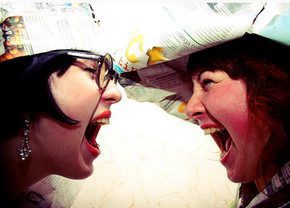Entrance exams to a music school or college
Contents
The proms are over, and it’s a busy time for every former student – they need to decide what to do next. I decided to write about how the entrance exams to a music school are going, so to speak, to share my impressions. What if someone needs to read something like this before entering to calm down.
Let’s start with the fact that about a week before the exams, the school holds consultations on absolutely all the disciplines that you have to pass, and even earlier, before these consultations, you need to submit documents for admission to the admissions committee, so as not to turn out to be a “mug.” However, let’s not be distracted by these little things – you will sort out the documents yourself.
So, a week before the exams, the school holds consultations – it is not recommended to skip such things, since consultations are needed so that the teachers can directly tell you what they want from you in the upcoming exam. Consultations are usually conducted by the same teachers who will then take your exams – therefore, it will not be a bad idea to get to know them in advance.
By the way, you can get to know them earlier if you first take a preparatory course at the school. About this and much more, for example, about how to enroll in college without having a music school behind you, read the article “How to enroll in a music school?”
What exams do I need to take?
You, of course, have already clarified this question in advance? No? Ugliness! This needs to be done first! Just in case, regarding the exams, let’s say the following. Typically this is what you need to submit:
- specialty (execution of the program according to the requirements – sing, play or conduct several previously learned works);
- colloquium (that is, an interview on the chosen profession);
- musical literacy (taken in writing – construct intervals, chords, etc. and orally – tell the topic proposed in the ticket, answer the examiner’s questions);
- solfeggio (also given both in writing and orally: in writing – dictation, orally – sing from a sheet of paper the proposed musical passage, individual chords, intervals, etc., and also recognize them by ear);
- musical literature (not everyone takes this exam, but only those who are planning to enroll in the music theory department);
- pianist (execution of the program, not everyone passes this exam – only theorists and conductors).
These are the main special exams that affect the applicant’s rating, since they are assessed by points (no matter on what scale – five-point, ten-point or hundred-point). The amount of points scored is your ticket to become a student.
There will be a separate discussion about how to prepare for exams in musical literacy, but for now you can read about how to write dictations in solfeggio.
Plus exams in Russian language and literature
In addition to these four (some people have five) main exams, everyone needs to pass mandatory exams in Russian language and literature. In the Russian language there can be a dictation, presentation or test. In literature, as a rule, it is a test or an oral examination (recitation of poems from the list, answer to a question on the school curriculum proposed on the ticket).
However, here you can just put on the table of the admissions committee both your Unified State Exam certificate (if you took the Unified State Exam) and your red certificate with straight A’s – you see, and you will simply be exempt from taking these exams. These subjects are not major subjects, so they are given only credits, not rating points.
Yes… many will say that there are just a lot of exams. Indeed, there are more entrance tests to a creative university or college than to a technical one. This is explained, firstly, by the specifics of the profession, and, secondly, by the relative ease of passing such tests. Let’s say, if you enter the Physics and Technology College, then you must know physics thoroughly, but here, at the entrance exams to a music school, you are asked only the most basic things, because everything is still ahead.
Something important! Receipt and passport!
When you submit your documents to the admissions committee, you will be given a receipt for receipt of documents – this is a document confirming your admission to the entrance examination, so do not lose it or forget it at home. You must come to any exam with a passport and this very receipt!
What else should I bring to the exam? This point is always discussed during consultations. For example, during the solfege dictation you must have your own pencil and eraser, but you will be given music paper.
How are the entrance exams conducted?
I remember when I took the test – I arrived an hour and a half before the exam – as it turned out, it was completely in vain: the security guard let people in strictly according to the schedule upon presentation of documents. Hence the conclusion – come about 15 minutes before the start, not earlier, but just don’t be late. If you are late for the exam, you may be allowed to take it with another group, but to achieve this will be, frankly, hemorrhoids. Read the rules; it is possible that those who do not appear for the exam without a good reason will be given a “failure” and will be eliminated from the competition. Therefore, be careful here. But, I repeat, you don’t need to arrive an hour and a half in advance – so as not to tickle your nerves once again.
Entrance exams at a music school for a specialty are held as follows. In a separate class or hall, auditions of applicants are organized in a certain order (order – by date of submission of documents). They come to the audition one at a time, the rest at this time are located in specially designated classrooms – there you can change clothes, as well as warm up a little, act out and sing, if necessary.
The remaining exams are taken by the whole group (or some part of it). The solfege dictation lasts approximately half an hour. They also come to oral exams as a whole group, sort out their tickets and prepare (about 20 minutes), answer – separately, at the instrument.
You can dress up for your specialty or piano exam (show off your artistry). You can come to other exams in a free form, but only within reason. Let’s say jeans are appropriate, but not shorts or sportswear.
What kind of students are teachers expecting?
Studying at a music school also differs from studying at a school or university in the nature of the relationship between students and teachers. For example, individual training, which involves personal communication between the student and the teacher, will be unusual for you. This is a very valuable experience, but you have to tune in to it.
What is required of you? Openness and sociability, in some cases artistry, as well as your inner agreement to work together. Try to cultivate wonderful spiritual qualities in yourself, don’t get irritated by little things, be attentive to the people around you, and accept professional criticism completely calmly and kindly.
And further! You are a creative person. In your life, if they do not already exist, such attributes of a creative personality should appear as favorite books or favorite artists, as well as friends from related fields of art (painters, writers, journalists, dancers, young dramatic actors).



